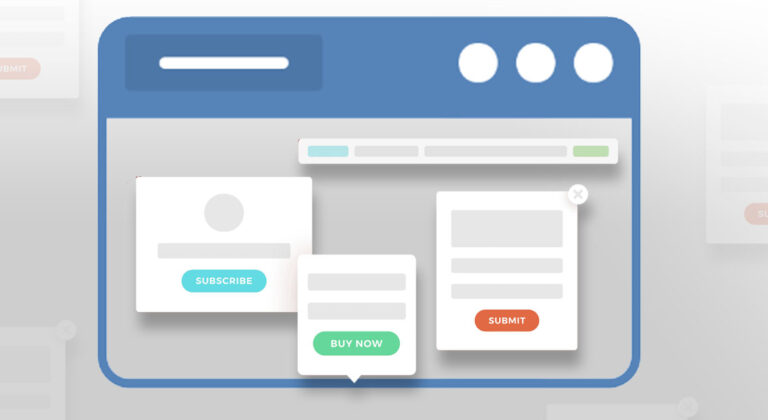Live Chat: 4 Best Practices That Will Skyrocket Your Conversions

I hope you enjoy this blog post. If you want Hello Bar to grow your leads, click here.
Author:
Ryan Bettencourt
Published
November 20, 2021

Live chat is a unique software tool that offers real-time customer service, all online.
It lets your site users receive immediate support and information from your customer care agents.
Live chat isn’t the same thing as a chatbot.
Instead, real-life humans manage live chats, which means customers get the “real deal.”
Potential Benefits Offered by HelloBar Live Chat
The chat experience is an important part of sales.
It’s also a beneficial way to generate new chat leads.
In fact, when used to its full potential, live chat may be the most powerful selling asset that your website has.
The key to this is ensuring you follow a few best practices.
When the best practices mentioned below are implemented, your marketing team will find it much easier to acquire more leads and simplify the entire lead generation process.
#1. Proper Placement of Live Chat
When someone navigates a website, they are used to looking at the right-hand side of the screen first.
If they are searching for live chat support, they will probably first look to the lower right-hand corner of the webpage.
This instinct was probably developed because of the diverse social media platforms, such as Facebook, which has the instant messaging center in this area.
If you aren’t sure about it, just look at some live chat examples on various websites.
When you navigate to a site that provides live chat support, chances are you will see the chat window placement is pretty much in the same location on each one.
This means if you want your live chat to provide results, you need to maintain this popular pattern.
#2. Avoid Using Robots for the Pre-Sale Process
You may think that having an army of chatbots is sufficient for pre-sale conversions; however, this simply isn’t the case.
Chat conversations with chatbots are robotic, stiff, and non-conversational – your website visitors will know, which is going to leave your sales team scrambling trying to win them back.
The entire point of live chat is providing warm, engaging, human-assisted help to improve a customer’s shopping experience.
If your customer wants to begin a chat, then having robotic responses or greetings will kill the effectiveness of the live chat experience.
As mentioned above, the automated responses provided by AI chatbots are transparent, and customers may bounce away from the site immediately because of this.
#3. Fast Replies
Everyone dreads being put on hold when they speak to someone on the phone.
While this is true, modern businesses have implemented hold music to help pass the time.
Well, with chat boxes, what’s the solution?
Your visitors are going to be staring at an empty chatbox, wondering if there is anyone there.
It’s a horrible feeling, and it doesn’t help with lead generation.
The chat conversation needs to move along smoothly and quickly.
Keep in mind that it’s estimated that when someone must wait for just 10 minutes, there is a 10 times higher likelihood that you will ever make contact with them.
If you are trying to generate leads, this isn’t good news.
It’s best if you can respond within just a minute of being contacted.
Even more than that, you are at risk of the person clicking away from your site altogether and going to your competitors, where the live chat software provides faster responses.
#4. Ensure Your Live Chat Window Is Easy to Access
It’s important to make sure that visitors can see your live chat button no matter where they are on your website.
You should never limit your live chat option to just the homepage of your website.
This is a bad move.
It’s important for live chat lead generation to ensure your live chat window is easy to find and access from every page on your website.
Keep in mind, unless someone is extremely interested in what you offer, they aren’t going to look for the live chat beyond the landing page, which means if they can’t find it, they may bounce away and never return.
Unfortunately, this can also increase bounce rates, which further harms your website’s ranking.
It’s especially true if you have a complex website that requires more effort for someone to take another step.
Rather than neglecting your live chat, be sure it is simple to find from any page on your site.
#5. Make It Clear Customers Are Talking to a Human
While this may seem obvious, it is an all-too-common mistake made in live chat windows.
Even if you offer a warm, friendly interaction, customers should also be able to see who they are speaking to.
Don’t worry – video isn’t required. Instead, just make sure to include a headshot of the person they are speaking to.
Make sure you don’t use a low-resolution picture or a photo from your security badge.
Instead, you need a high-quality picture of the agent the customer is actually speaking to.
Adding this extra level of personalization goes a long way in ensuring that your customers have a positive experience.
Remember, live chat is your opportunity to help your brand stand out from the others.
#6. Mirror the Customers Tone and Style
In most situations, text messaging is informal and relaxed.
This means this is how most people will talk when they are chatting online.
You should take steps to ensure you use the same tone and style as the customer.
While it is best to avoid talking down to your customers, remain professional while mirroring their style.
Always avoid industry lingo and jargon as well.
Implementing Live Chat on Your Website
There are more than a few things to consider when it comes to implementing live chat on your website.
However, if you are going to use this feature, you need to make sure that you are using the best practices mentioned here.
Doing so is going to ensure that your customers have the best experience possible with your website and your product or services.







